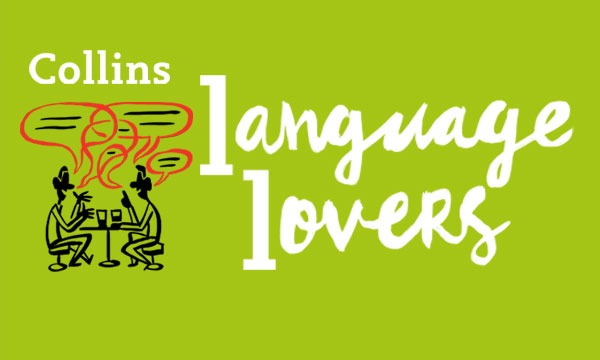In a period of global political and financial upheaval, as well as many armed conflicts, there has been much recent discussion about the place of ‘soft power’ in the world today.
What is soft power?
‘Soft power’ denotes the ability to influence through attraction and persuasion rather than coercion or payment. This concept became increasingly relevant in our interconnected world, where cultural influence could often transcend borders more effectively than force.
Etymology: a modern construction
‘Soft power’ is a relatively recent addition to our lexicon, with its earliest citations from the late 20th century. It was popularized by Joseph Nye, a political scientist, in his book Bound to Lead: The Changing Nature of American Power (1990). Obviously, the term combines two familiar English words: soft, from Old English sōfte, gentle, mild and power, from Anglo-Norman poer ability, strength, which can be traced back to Latin posse to be able.
From academic theory to common usage
With the introduction of the term, soft power expressed a novel way to understand influence in a post-Cold War landscape. Nye observed that cultural exports – films, music, consumer brands, and even ideals – could give a country leverage without the use of force.
The term quickly transcended academic circles. By the early 2000s, it had entered mainstream vocabulary, with nations worldwide explicitly developing cultural diplomacy strategies.
Other ‘soft’ concepts
From a linguistic point of view, it is interesting how the adjective ‘soft’ has been applied to concepts that have a common thread of non-coercive, interpersonal, or cultural elements, for example:
soft skills: interpersonal abilities like communication, teamwork, and emotional intelligence, as opposed to hard skills such as technical knowledge
soft diplomacy: diplomatic efforts focusing on cultural exchange rather than formal negotiatsoft news: media content focusing on human interest stories as opposed to hard news about politics and economics
soft news: media content focusing on human interest stories as opposed to hard news about politics and economics
soft science: a science, such as sociology or anthropology, that deals with humans as its principal subject matter, and is therefore not generally considered to be based on rigorous experimentation, in contrast to hard sciences like physics and chemistry
The evolution of soft power in the Digital Age
The digital revolution has expanded the application of soft power. Today, the concept encompasses influence through social media, streaming platforms, and other digital channels.
This evolution reflects how language adapts to technological and social change. New platforms create new opportunities, and our language evolves to describe these emerging dynamics.
Linguistic cousins of soft power
Several related terms have emerged alongside soft power or gained new relevance in its wake:
cultural capital: sociologist Pierre Bourdieu’s concept of non-financial social assets that promote social mobility
public diplomacy: government-sponsored programmes intended to inform or influence public opinion in other countries
nation branding: the application of corporate branding techniques to countries and their policies
smart power: Joseph Nye’s follow-up concept describing the strategic combination of hard and soft power
sharp power: manipulation of public opinion through disinformation and other attempts to mislead
Words encapsulating soft power
The adoption of soft power initiatives by various countries has brought some previously unknown terms to the attention of the English-speaking world.
guochao: literally ‘national wave/trend’ (from guo national and chao tide or movement), but also known as ‘China chic’, Guochao originally celebrated Chinese cultural heritage and domestic products. However, it has evolved beyond the frontiers of that country into a global phenomenon, with many Chinese brands gaining recognition in international markets.
hallyu: also known as ‘Korean wave’, from its blend of Han-, indicating South Korea (known in that country as Hanguk, literally ‘Han country’) with lyu or ryu, wave, trend. It denotes the popular culture of South Korea, especially in reference to its international popularity, driven by exports such as films and TV series, pop music (‘K-pop’), and cosmetics (K-beauty).
anime: a type of Japanese animated film with themes and styles often intended to appeal to adults. In this, it is similar to manga (literally ‘comic strip’, from man- random and ga pictures) comic books, and both are recognized worldwide.
kawaii: literally meaning cute or cuteness, from ka acceptable + ai love, kawaii has come to denote a Japanese artistic and cultural style using bright colours and characters with a childlike appearance, as embodied in internationally popular creations like Hello Kitty and the Pokémon Pikachu.
The UK has also seen influential celebrations of its culture. The 1990s saw the ‘Cool Britannia’ phenomenon, largely driven by British pop music (‘Britpop’) and fashion. More recently, ‘Britishcore’ was coined to denote an online aesthetic embracing the shabbier, and arguably stereotypical, aspects of UK life: think rundown pubs, weak tea and shell suits.
The power of words in a changing world
From its academic origins just over three decades ago, soft power has become a key concept in wider discussions about influence and persuasion. It exemplifies how language adapts to describe new realities and conceptual frameworks.
The story of soft power also reminds us that language can evolve not just through natural linguistic drift but also through the deliberate introduction of terms that capture emerging phenomena. Just as the world changes, language changes too.
By Collins Dictionaries
All opinions expressed on this blog are those of the individual writers, and do not necessarily reflect the opinions or policies of Collins, or its parent company, HarperCollins.



